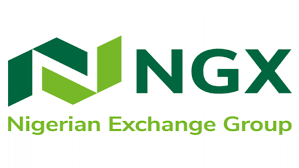For the fact that managing director of Nigerian Ports Authority (NPA), Ms. Hadiza Bala Usman has made it clear that Nigerian ports have capacity to take up traffic on vehicle import ban is an indication of the possibility of truly reversing the N200bn loss traced to vehicle imports via land borders over the years.
In welcoming the recent ban, Usman assured that the Nigerian ports are capable of taking the import traffic that will emerge as a result of the ban.
In her submission, she noted that “We are very ready to have seamless operations of increased traffic. Some of the traffic that we are seeing dwindling was the function of some of the government policies on importation of new cars. With this ban through the land borders, we will see increase ports activities and we have put in place mechanisms to ensure that the additional traffic will not form any bottleneck. We always had that capacity only that it was not utilised, but now that we hopefully will get more traffic due to the ban, we will just up our ante. The terminal operators are keen and they are ready to take up the traffic on vehicle importation through the ports,”
Statistics have shown that government is on a yearly loss of about N200 billion yearly to diversion of automobile imports to the ports in neighboring countries, particularly the Port of Cotonou in Republic of Benin.
Analysts say the amount, according to stakeholders represents the value of tariff that should have accrued to government through the Nigerian Customs Service (NCS), if the vehicles were imported through Nigerian ports.
By statutory responsibility, the Nigerian Customs is in charge of collecting revenues for government through duties payable as well as guarding against smuggling activities.
Unless more drastic reforms are carried out in the ports, more Nigerian importers may continue to be attracted to the Port of Cotonou because of lower customs duty on vehicles and other imports.
Some clearing agents at Seme border who spoke to Business Hilights Thursday averred that even though there is a ban in place, vehicles cleared in Cotonou will still find their ways into the country because if they lose four vehicles and cross about 10 or 15 in the process of smuggling, they still covered considering the low amount of duties paid to Cotonou ports.
Welcoming the recent ban on land border imports, the Managing Director of PTML Terminal, Ascanio Russo, expressed support for the ban on importation of vehicles through the land borders imposed recently by the Federal Government.
It is clear that PTML is the leading dedicated Roll-On-Roll-Off (RORO) terminal in Nigeria, handling the largest volume of vehicles imported into the country.
But Russo said the company’s operations were, however, negatively affected by the astronomical hike in the import duties of vehicles, leading to a loss of more than 80 per cent of its cargo volume.
According to him, the hike in vehicles import duty from 10 per cent to 35 per cent and the imposition of an additional 35 per cent surcharge under the administration of former President Goodluck Jonathan, led to the diversion of Nigerian-bound vehicles to ports of neighbouring countries and increased smuggling activities.
Reacting to the ban in a statement recently, Russo said “We fully support this ban, which we believe is going to halt the huge import of vehicles for the Nigerian market through the ports of neighbouring countries and the loss of revenues by the Federal Government, the Nigeria Customs Service and private operators”.
“We are confident and hopeful that the government may want to go a step further and review downward the level of duties applied on used vehicles to make them affordable for the Nigerian people.
Explaining more on why vehicular import traffic grew in Cotonou and some northern borders with Chad and Niger republic, the Chairman, Seaport Terminal Operators Association of Nigeria (STAON), Princess Vicky Haastrup, argued that “Since the high tariff was introduced, importers have resorted to landing their vehicles at the ports of neighbouring countries and smuggling them into Nigeria without paying appropriate duties to government. This amounted to huge revenue loss to Customs”.
She stressed further that “The policy also led to loss of more 5,000 direct and indirect jobs at the affected port.”
But on the actual way forward, several maritime industry stakeholders had, at various times, called on the government to reduce the import duty on vehicles to stem the tide of smuggling and revive operations at Nigeria’s RORO ports, which had suffered the most from the hike in vehicles import duty.
There are indications that unless this is done alongside return of ease of doing business at ports, car smugglers may now be perfecting strategies to beat Customs at land border posts with minimal loses, pending when duties will be put at encouraging limits.









